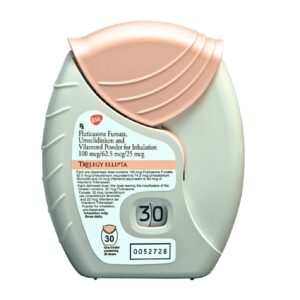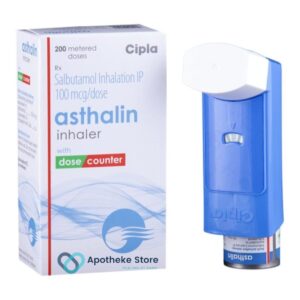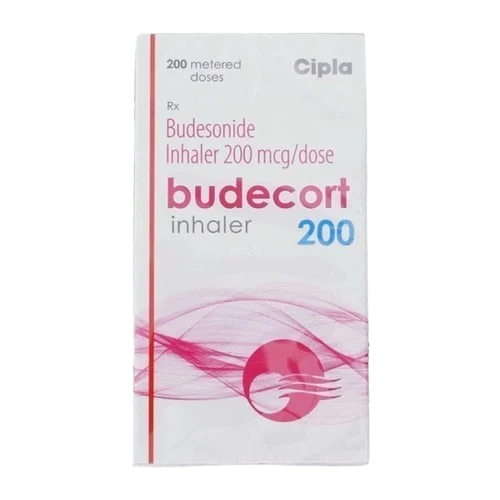Budesonide 200mcg (Budecort) Inhaler
$65.00 – $183.00
Generic name – Budesonide 200mcg Budecort Inhaler
Brand name – Budecort 200mcg Inhaler
Manufacturer – Cipla LTD
Packaging – 1 unit per box
Delivery Time – 6 To 15 Days.
Description
Budesonide 200mcg (Budecort) Inhaler
Your doctor will tell you how often you need to use Budecort 200 Inhaler. It is important that you take the lowest dose needed to effectively control your asthma. The effect of this medicine may be noticeable after a few days but will only reach its maximum after a few weeks. This medicine must be used regularly to be effective, so go on taking it even if you do not have any symptoms. No symptoms mean that the medicine is doing its job. If you stop taking it your asthma may get worse. It should not be used to relieve sudden asthma attacks. If an asthma attack occurs, use your quick-relief inhaler “reliever”. To get the benefit from this medicine you need to make sure you get your inhaler technique right, otherwise, it will not work as well.
The most common side effects are irritation in the throat, difficulty swallowing, and fungal infections in the mouth or throat. If you get these, do not stop taking it but do talk to your doctor. You can help prevent these symptoms by rinsing your mouth and throat with water or brushing your teeth after using your inhaler. There are other rare, side effects that can be serious. Talk to your doctor if you are worried about them. In general, you should be trying to avoid situations that make your asthma worse (your triggers) and try not to smoke.
Before taking Budecort 200 Inhaler, you should tell your doctor if you have tuberculosis, any infections in your mouth or lungs, or liver disease. While taking it you may be more at risk of getting infections so stay away from people with colds and flu. If you use Budecort 200 Inhaler for a long time it may cause weak bones (osteoporosis) and damage to your eyes (glaucoma or cataracts). You might need tests for bone density and eye pressure. Ask your doctor whether it’s safe to take this medicine if you are pregnant or breastfeeding.
USES OF BUDECORT INHALER
- Asthma
BENEFITS OF BUDECORT INHALER
In Asthma
SIDE EFFECTS OF BUDECORT INHALER
Common side effects of Budecort
- Difficulty in swallowing
- Fungal infection of mouth
- Fungal infection of oropharynx
- Headache
- Abdominal pain
- Depression
- Joint pain
- Cushing syndrome
- Dyspepsia
- Increased risk of infection
- Muscle pain
- Muscle weakness
- Muscle twitching
- Osteoporosis
- Irritability
- Euphoria (feeling of intense excitement and happiness)
Additional information
| Packing Size | 3 Units, 6 Units, 9 Units |
|---|
Related products
-

Trelegy Ellipta (Inhalation Powder)
$95.00 – $278.00 Select options This product has multiple variants. The options may be chosen on the product page -

Asthalin 100mcg Inhaler
$30.00 – $100.00 Select options This product has multiple variants. The options may be chosen on the product page -

Symbicort 80mcg/4.5mcg Turbuhaler
$50.00 – $150.00 Select options This product has multiple variants. The options may be chosen on the product page -

Budecort 1mg Respules 2ml
$52.00 – $150.00 Select options This product has multiple variants. The options may be chosen on the product page


